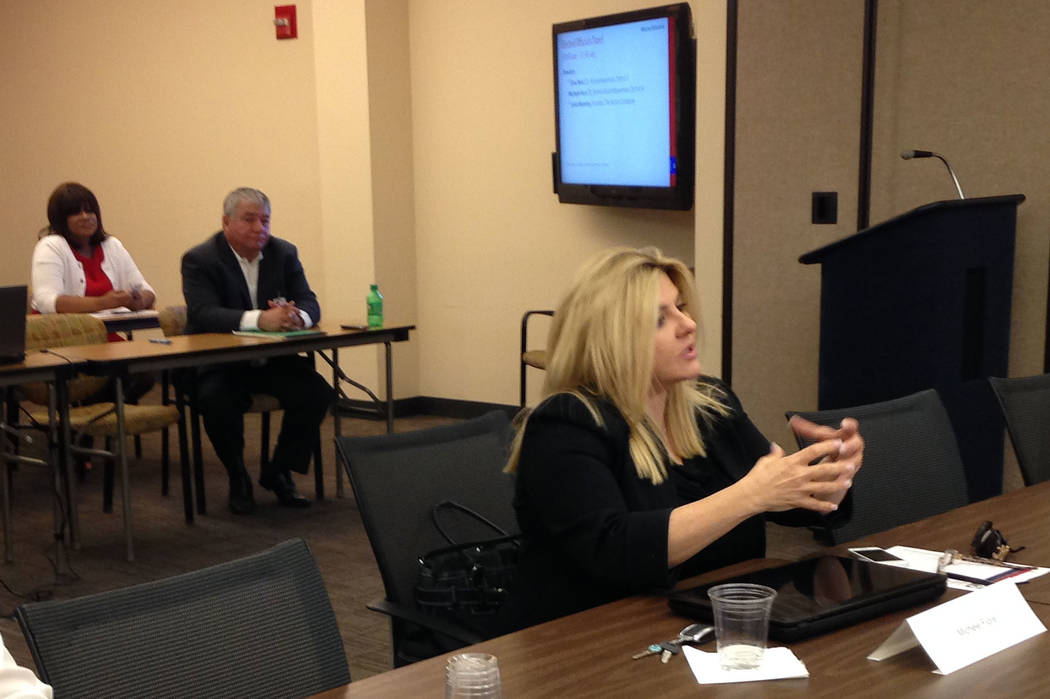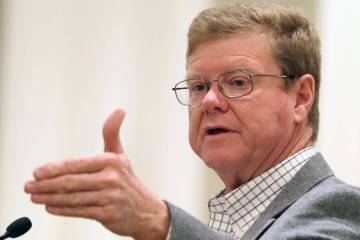Civic leaders say municipal fees burden low-income, minority communities
Nevada’s advisory committee to the U.S. Commission on Civil Rights heard a consensus from civic leaders Wednesday: Municipal fines and fees applied statewide adversely burden low-income, minority communities.
In a daylong hearing, panelists from the commission’s Nevada Advisory Committee learned, among other things, that administrative fees for traffic violations can easily exceed the original fine, and in many instances, failure to pay leads to incarceration.
“We are using our incarceration system as a collection agency,” said former assemblywoman and current Las Vegas City Council candidate Michele Fiore, R-Las Vegas, who backed a bill in the last legislative session that, had it passed, would have decriminalized traffic offenses.
“Sometimes people are living paycheck to paycheck,” said Leisa Moseley, founder of The Action Co., a political and business consulting firm. “If you look at the demographics of the folks that are being hit the hardest, they are in some of the poorest ZIP codes in the city of Las Vegas.”
A simple solution, she said, at least until alternative revenue streams can be found, would be to establish a grace period for the payment of the fines.
Excessive fees also affect people in the juvenile justice system adversely, panelists said. An array of fees, including the cost of overnight stays in detention facilities and restitutions, can add up to thousands of dollars, placing an additional burden on cash-strapped families that often leads to extended stays for children in detention centers or foster care settings.
“We know that the longer you keep a child in the child delinquency or the foster care system or both,” said Second Judicial District Court Judge Egan Walker, “the more likely they are to meet the following demographics — school dropout, early childhood pregnancy, and … recidivism as an adult.”
He said he could understand how from an outside perspective, people might think parents should pay for the cost of their children who end up in a detention facility or a protective home setting, but first-hand experience has shown him that the accumulation of fees has the “exact opposite effects (from what) you want in the criminal justice system.”
Noting that the issue goes far beyond Nevada, Nicole Austin-Hillery, director of the Brennan Center for Justice at New York University, said, “We know that in the United States we jail more people than any other democratic society in the world.
“We are troubled by these numbers,” she said, “and we are troubled by any systems that remain in place that continue to perpetuate these numbers, and we think this issue of fees and fines is one that does just that.”
Findings from Wednesday’s hearing will be compiled in a memo later this year and included in the commission’s annual Statutory Enforcement Report to the president and Congress.
Those interested in contributing their input have until April 14 to send their comments to Ana Fortes at afortes@usccr.gov or to her attention at the following address: United States Commission on Civil Rights, Western Regional Office, 300 N. Los Angeles St., Suite 2010, Los Angeles, CA 90012. Fortes can also be reached at 213-894-3437.
Contact Lucy Hood at lhood@reviewjournal.com or 702 387-2904. Follow @lucyahood on Twitter.





























